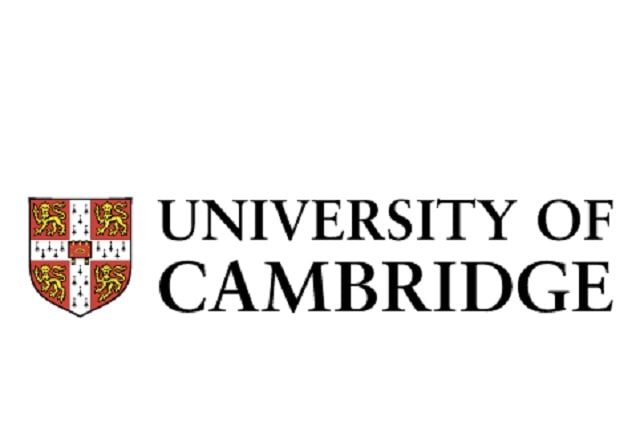New grading policy leaves CAIE students scratching heads
Schools and students struggle to make sense of new grading system by Cambridge

New grading policy leaves CAIE students scratching heads
As per the latest guideline issued to concerned institutions via email, the decision on grades to be awarded to candidates will be made using evidence already available with Cambridge supplemented with what is provided by the schools. Asking schools to consider what evidence will they be able to gather to support the aforementioned decision, the notification also advises schools that they do not necessarily need to set students’ fresh work for verification. Instead, they can provide available evidence in the form of but not limited to mock exams, coursework, incomplete or complete assignments, AS Level results for A Level candidates and grades in previous sittings for candidates re-taking exams, to be eligible for the exam-less grading system.
Schools in dilemma
Where a more detailed explanation is to be issued on April 7, schools and students believe that the current information offers them very little insight on how the new system will ensure transparency and fairness across the board.
Cambridge students to be graded on 'skills, knowledge' amid coronavirus crisis
Several school administrations across the country have expressed their reservations about offering mock exams and class work as evidence. “I wonder why Cambridge couldn’t keep another exam session like Aug/Sept series open instead of this evidence-based system, which seems to have a lot of loopholes,” said Beacon House School System Regional Senior Manager Training and Pakistan Representative Cambridge International Advisory Board Fouzia Rizwan. “For instance, students often take school-based exams a bit casually but still tend to outperform all previous assessments in external exams. So I’m not sure how are we going to cater to this through previously collected evidences. It will be quite unfair,” she added.
Offering context to the principal’s claim, Hammad who is a final year A Level student at a reputable college in Peshawar shared that despite being a bright student, his mock results last year reflected quite the contrary. “No one takes mocks seriously. I got three U grades in my mocks last year. But then I took tuitions and evening classes and ended up scoring straight As in my AS Level examination,” the student shared.
“Cambridge claims it is trying to obtain the fairest outcome possible. But tell me, how is it fair that we are to be graded on the same mock exam when my school has the hardest mock testing policy while my friend’s school is rather lenient in that regard?” opined Aniqa, another A Level final year student from Rawalpindi.
Expressing her doubts about the new system, Aniqa also fears that the turn of events will delay her graduation, placing her at least a year behind her classmates. “My AS Level grades are not good enough for the universities I plan to apply to and I doubt my classwork would prove any better. With no time to decide, I have no option but to take the Oct/Nov exams and be stuck in a gap year,” she lamented.
Private candidates feel left out
Where school students have certain guidance in the form of academic counselors and school administration, it is private candidates who believe they got the short end of the stick in the deal.
According to the examining body’s latest guideline for private candidates, they are to be graded in the same manner as school students, in that all the grades awarded will be based on evidence. However, in the case of candidates who have not been taught at the centre handling their entry, respective centres are to decide what evidence of the candidate’s work can possibly be acquired and authenticated. Although any evidence from candidates themselves or their parents will not be accepted, previous schools and tutors will be considered on individual context.
The issue which arises here is that most private candidates in Pakistan prepare through home tutor services or attend tuition centres and academies, neither of which consistently maintain students’ academic records, leaving little which could be used for evidence.
Cambridge cancels all examinations in Pakistan amid coronavirus outbreak
“Many students appear privately simply because they cannot afford to pay the hefty school or college fee. Now that there’s this new decision to grade students based partly on their tutor’s evidence, several tutors I know of have already started hinting at accepting a pretty penny for a bumped-up grade. I feel this puts underprivileged students at a great disadvantage,” shared Naima, a private A Level candidate from Lahore.
Talking to The Express Tribune, Faizan a Karachi based home tutor who teaches physics and mathematics to A and O Level students said that he himself is not sure what to say to parents asking him what evidence will he furnish to Cambridge, when the time comes. “Most of my students are quite studious but I have no idea how to prove that to Cambridge, if I am asked to. I never collected any official assignments or graded any papers besides what my students do in their own notebooks—it’s the same for most other home tutors too.”
On the other hand, according to Fouzia Rizwan, Cambridge’s decision to let centres and tutors vouch for students’ performance has brought CAIE’s credibility at stake too. “I think instead of relying on a one-shot system, Cambridge should rather adopt a system of continuous assessments, which would prove helpful in situations like such,” she asserted.
However, when The Express Tribune tried reaching out to Cambridge International for an explanation on how the international examination service tends to address the concerns of its candidates, no relevant information could be offered. “I think all explanation is there in the previous story,” rejoined the Cambridge Country Director Pakistan Uzma Yousuf, irked by the media report published last week about the high stake international examination’s fate.
(Additional reporting by Muhammad Phaseeh Ul Haque)


















COMMENTS
Comments are moderated and generally will be posted if they are on-topic and not abusive.
For more information, please see our Comments FAQ